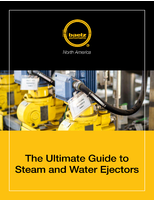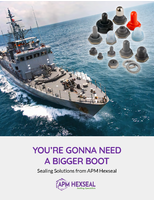Abstracts invited for Geosynthetic Materials workshop.
Press Release Summary:
Abstracts are invited in support of Geosynthetic Materials Durability: Field and Laboratory Experiences workshop, scheduled for Jan 29, 2010. Workshop will focus on all types of geosynthetic materials durability in both covered and exposed applications. Four parts will include long term field experiences under various environment conditions, accelerated weathering studies, polymers and additive packages that constitute final material's formulation, and summary of workshop by panel of experts.
Original Press Release:
Abstracts Invited for ASTM International Workshop on Geosynthetic Materials Durability
W. CONSHOHOCKEN, Pa., 27 May 2009 - Abstracts are invited in support of the workshop Geosynthetic Materials Durability: Field and Laboratory Experiences, to be held Jan. 29, 2010, at the Grand Hyatt San Antonio in San Antonio, Texas. Sponsored by ASTM International Committee D35 on Geosynthetics and the Geosynthetic Research Institute (GRI), the workshop will be held in conjunction with the Jan. 27-29 standards development meetings of the committee.
The workshop will focus on all types of geosynthetic materials durability in both covered and exposed applications, and will be organized in four parts:
Long-term field experiences under various environmental conditions, i.e., exposed versus covered, hot versus cold, wet versus dry, stressed versus nonstressed.
Accelerated weathering studies - all types of geosynthetics that have been evaluated from the perspective of durability are encouraged, particularly if corroborated with field experiences. Note that the workshop is on polymer durability and not on long-term creep, creep rupture, or installation damage.
Polymers and additive packages that constitute the final geosynthetic material's formulation. This critical aspect of durability is rarely discussed in an open forum and the workshop organizers feel that (after 40 years of geosynthetics use) the time has come. Examples of premier as well as unsuccessful formulations are greatly encouraged.
The fourth part of the workshop will consist of a panel of experts who will summarize the workshop and project research durability needs into the future. Discussions on lifetime prediction methods and projected values will also be included.
Titles and abstracts for this workshop must be sent to both workshop co-chairs by Sept. 30, 2009. Based upon their appropriateness and acceptance, the formal program will be developed. Titles and extended summaries (2 to 5 pages) will then be required by Nov. 30, 2009. The final abstracts will form the information booklet that will be distributed to all participants at the workshop. All oral presentations will be on PowerPoint with a time allocation of 15 to 25 minutes, depending on the response to this solicitation.
Additional information is available at www.astm.org/d35work110.htm or by contacting workshop co-chairs Sam R. Allen, TRI/Environmental Inc., Austin, Texas (phone: 512-263 2101; sallen@tri-env.com); or George R. Koerner, Ph.D., Geosynthetic Institute, Folsom, Pa. (phone: 610-522 8440; gkoerner@dca.net).
Committee D35 is one of 141 ASTM technical standards-writing committees. Established in 1898, ASTM International is one of the largest international standards development and delivery systems in the world. ASTM International meets the World Trade Organization (WTO) principles for the development of international standards: coherence, consensus, development dimension, effectiveness, impartiality, openness, relevance and transparency. ASTM standards are accepted and used in research and development, product testing, quality systems and commercial transactions around the globe.




